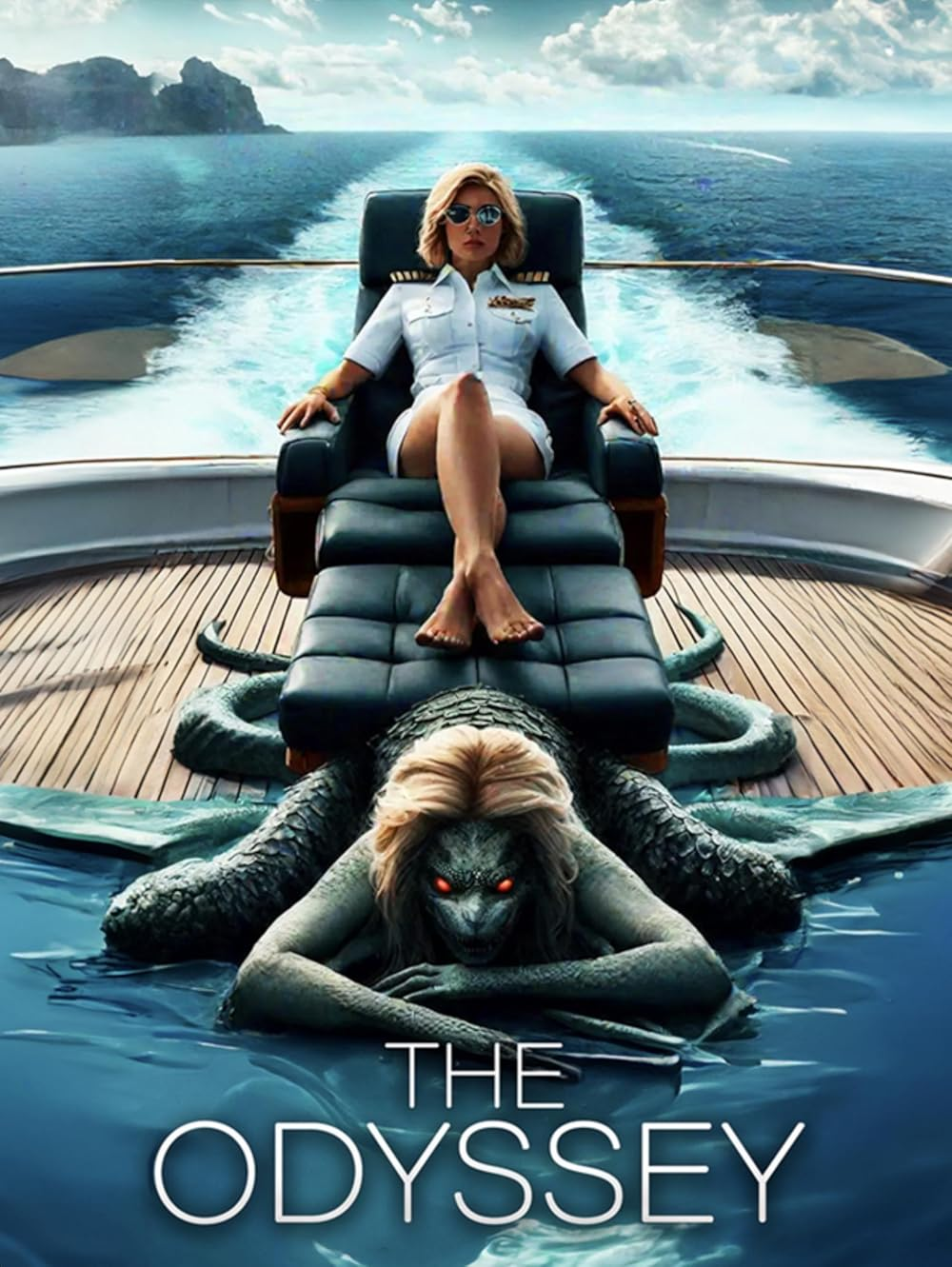Homer’s “Odyssey” is renowned as one of the greatest literary works of all time, captivating audiences for nearly three millennia. The classic tale follows the clever Odysseus as he embarks on a perilous journey home after the Trojan War, encountering mythological creatures and divine beings along the way. Recently, “The Odyssey” has regained prominence, sparked by a stunning new translation by Daniel Mendelsohn and an upcoming film adaptation directed by Christopher Nolan. This enduring epic not only showcases the struggles of its central character but also provides profound insights into human nature and the quest for identity. As fans eagerly await the latest interpretations, from stage adaptations to cinematic retellings, the timeless themes of the “Odyssey” continue to resonate deeply with contemporary audiences.
The epic poem often referred to as “Homer’s Odyssey” remains a cornerstone of classical literature, drawing readers into its intricate tapestry of adventure and self-discovery. This timeless narrative explores the trials of the protagonist, Odysseus, as he navigates a world filled with challenges and temptations, embodying the archetype of the heroic journey. Fresh adaptations, such as the eagerly anticipated “Odyssey movie Christopher Nolan,” alongside the insightful analysis offered in “Odyssey by Daniel Mendelsohn,” reveal the poem’s sustained relevance. With each interpretation, be it the new translation of “The Odyssey” or innovative stage performances, audiences are invited to engage with the foundational themes of human experience, illustrating the universal nature of Odysseus’s quest. As such, the myriad “Odyssey adaptations” not only rekindle interest in this ancient text but also affirm its place in modern cultural discourse.
The Timeless Appeal of Homer’s Odyssey
Homer’s “Odyssey” has mesmerized audiences for millennia, captivating readers with its intricate storytelling and deep exploration of human experiences. This epic poem not only recounts Odysseus’s perilous journey home but also delves into themes such as resilience, loyalty, and the quest for identity. The story transcends mere entertainment, offering insights into the human condition that remain relevant even in contemporary society. Whether through performances like the recent adaptation at the A.R.T. or Mendelsohn’s new translation, the allure of the “Odyssey” demonstrates its status as a cornerstone of literature that continually inspires new interpretations and adaptations.
Furthermore, the vibrant storytelling of “The Odyssey” serves as a template for modern narratives across various media. From theater to cinema, artists have reimagined Odysseus’s adventures, underscoring the epic’s adaptability and continued relevance. The character of Odysseus, often seen as a trickster hero, presents complex moral dilemmas that invite discussions on ethics, loyalty, and the human experience. These enduring themes are crucial for both new and returning readers, inviting them to embark on their own journeys of discovery.
As a result of its rich narrative fabric, the “Odyssey” informs countless adaptations in literature and film today. The forthcoming movie by acclaimed director Christopher Nolan promises to offer a fresh perspective on this ancient tale, tapping into the universal archetypes that resonate with modern audiences. Similarly, translations such as Daniel Mendelsohn’s provide contemporary readers with access to the depth of Homer’s text, helping them appreciate the beauty and intricacies of the original Greek. Through these diverse interpretations, the poetic and philosophical undercurrents of the “Odyssey” continue to inspire creativity and provoke thought across generations.
Exploring New Translations of The Odyssey
In the realm of literary translations, Daniel Mendelsohn’s new version of “The Odyssey” has garnered significant attention. Unlike earlier translations, Mendelsohn infuses modern sensibilities into the ancient text, making it more accessible to today’s audiences. His approach emphasizes not just the literal meaning of the words but also the emotional weight and philosophical richness embedded within the narrative. As the first male translator of the epic in decades, Mendelsohn’s work contrasts with Emily Wilson’s groundbreaking translation, which was notable for being the first by a woman, highlighting different perspectives and interpretations of this classic tale.
Moreover, each translation brings forth unique stylistic flourishes that can change how readers perceive characters and themes. For instance, Wilson’s portrayal of Penelope and her cunning intelligence can shift dramatically depending on the translator’s choices. The ongoing conversation around these translations enriches the understanding of Homeric poetry and invites a broader audience to engage with the themes of loyalty, identity, and the quest for homecoming that the “Odyssey” encapsulates.
Translations like George Chapman’s in the early 17th century laid the groundwork for contemporary interpretations, illustrating the timelessness of Homer’s work. While Chapman’s poetic style has its charm, modern translations strive to shed light on the intricate layers of meaning that inform the characters’ motivations and actions. The dialogue between these different versions highlights how language and cultural context influence the reception of such a significant work. As readers navigate through these varied translations, they not only unveil new dimensions of “The Odyssey” but also connect with the legacy of one of history’s greatest poets.
The Fascination with Odysseus: A Trickster Hero
Odysseus, the protagonist of Homer’s epic, is often viewed through the lens of a trickster hero—a character who defies traditional norms and embodies complexity. This fascination stems from his cunning nature and the moral ambiguities he navigates throughout his journey. Unlike typical heroic figures, Odysseus often resorts to deceit and manipulation to achieve his goals, prompting audiences to question the definition of heroism itself. His duality as both a beloved leader and a flawed individual resonates with readers, offering a deeper understanding of the human psyche and the intrinsic conflict between virtue and vice.
Moreover, the dual nature of Odysseus’s character enhances the themes of identity and transformation within the “Odyssey.” As he encounters various adversities, his ability to adapt and shift identities reflects broader human experiences. This narrative dynamic resonates with modern audiences facing their own challenges, reinforcing the timeless relevancy of Odysseus’s journey. The allure of the trickster hero archetype manifests in many contemporary adaptations, further securing Odysseus’s place as a multifaceted character worth revisiting.
The continual fascination with Odysseus allows scholars and audiences alike to engage in rich discussions about morality, leadership, and identity. Each reading of the “Odyssey” can reveal new interpretations of Odysseus’s character, whether focusing on his cunning strategies as he outsmarts adversaries or his moments of vulnerability and longing for home. Understanding Odysseus as a trickster enables readers to appreciate the complexities of human nature depicted in the poem. This exploration not only enhances the reading experience but also opens up dialogues about how we perceive heroism in our own lives today.
Penelope: The Smart and Resilient Woman of The Odyssey
Among the many rich characters in Homer’s “Odyssey,” Penelope stands out as a symbol of intelligence and resilience. Often overshadowed by her husband, Odysseus, she exhibits qualities that are quintessential to her character’s depth. Penelope’s cunning strategies to fend off suitors waiting for her husband’s return demonstrate her strength and resourcefulness, pivotal traits that challenge the traditional notions of women in epic narratives. Her intelligence shines through as she creates a narrative of hope and fidelity, keeping the memory of Odysseus alive even amidst uncertainty.
Furthermore, recent analyses of Penelope’s character also highlight her complex emotional landscape. Scholars note that her dream sequences offer insights into her psyche and reinforce her intelligence and foresight, which often rivals that of Odysseus himself. By interpreting Penelope’s dreams, readers can explore her inner struggles, as well as her unwavering loyalty, love, and profound understanding of human relationships. These layers of Penelope’s character reveal her as not just a passive figure waiting for Odysseus but as an active participant in her own narrative.
The cultural shifts in the portrayal of Penelope in adaptations and translations further amplify her importance in discussions of gender roles within literature. For instance, modern interpretations often emphasize her strategic prowess, contrasting sharply with earlier portrayals that might depict her in a more submissive light. These contemporary readings reflect a growing recognition of women’s stories and contributions to literature, indicative of societal changes in viewing gender roles. The emphasis on Penelope’s character encourages a reevaluation of what constitutes heroism and strength, showcasing that resilience takes many forms—both in waiting and in proactive engagement.
The Journey of the Soul in The Odyssey
At its core, the “Odyssey” offers readers profound insights into the journey of the soul, a theme that resonates across time and cultures. Odysseus’s adventures symbolize not only the physical journey home but also a deeper exploration of self-discovery and personal growth. Through trials and tribulations, he learns essential lessons about loyalty, love, and the complexities of human nature. This quest for enlightenment and wisdom is as relevant today as it was in ancient times, inviting readers to reflect on their own life journeys and the lessons learned along the way.
Greg Nagy emphasizes that the essence of the “Odyssey” is about more than just physical displacement; it encapsulates the internal struggles every individual faces. This universal theme of searching for identity and purpose within the chaos of life encourages readers to engage deeply with their own experiences. The journey of Odysseus, fraught with challenges and self-doubt, mirrors the human experience of navigating uncertainties, thereby creating a lasting impact on readers of all generations.
Moreover, the narrative structure of the “Odyssey” serves as a powerful metaphor for the soul’s journey. Through various encounters with divine beings and mythical creatures, Odysseus confronts his fears, desires, and ambitions, ultimately leading to personal transformation. This transformative process is not unique to Odysseus; rather, it is a shared experience that readers can relate to as they navigate their own life challenges. The epic encourages introspection and resilience, reminding us that the journey, fraught with obstacles, can ultimately lead to self-realization and growth.
Cinematic Adaptations of The Odyssey
The influence of Homer’s “Odyssey” extends beyond literature into cinema, where filmmakers have sought to reinterpret this ancient tale for modern audiences. A notable upcoming film adaptation directed by Christopher Nolan promises to bring a fresh cinematic perspective to the epic. Nolan’s innovative storytelling and unique visual style may provide new layers of understanding to Odysseus’s harrowing journey, creating an experience that resonates with contemporary viewers while remaining faithful to the essence of the original poem. Such adaptations are integral in bridging the gap between ancient narratives and today’s digital storytelling landscape.
Furthermore, the exploration of epic themes within the cinematic adaptations of the “Odyssey” demonstrates the enduring significance of Homer’s text in popular culture. These films often amplify the emotional stakes of Odysseus’s journey while introducing modern elements that appeal to today’s audience. By reimagining these classical stories, filmmakers not only invigorate the narrative but also provoke discussions about heroism, morality, and identity. The cinematic retellings reflect a continuous dialogue between the past and present, showcasing how ancient stories maintain their relevance and inspire creativity across diverse media.
Adaptations, particularly in cinema, also highlight the transformation of characters, providing new interpretations and perspectives on timeless figures like Odysseus and Penelope. Movie adaptations allow for visual storytelling that can evoke emotional responses and deepen audience engagement with the text. The complexities of Odysseus as a trickster hero or Penelope as a figure of strength can be further explored through the medium’s ability to incorporate visual and auditory elements. By breathing new life into these characters, filmmakers contribute to the rich tapestry of interpretations surrounding the “Odyssey,” ensuring its place in both literary and cinematic history.
Frequently Asked Questions
What is the significance of Homer’s Odyssey in literature?
Homer’s Odyssey is one of the foundational texts of Western literature, exploring themes like heroism, loyalty, and the human experience. It stands out for its complex characters, particularly Odysseus’s journey and transformation, and remains influential across various adaptations and translations.
How does Daniel Mendelsohn’s new translation of The Odyssey differ from previous versions?
Daniel Mendelsohn’s new translation of The Odyssey emphasizes emotional depth and lyrical beauty, making it accessible for contemporary readers while remaining faithful to the original Greek text. Mendelsohn’s insights as a classicist bring a fresh perspective to the epic’s themes and characters.
What are some notable adaptations of The Odyssey in modern media?
Notable adaptations of The Odyssey include stage productions, animated films, and upcoming projects like the Odyssey movie directed by Christopher Nolan. These adaptations reflect the poem’s timeless themes and ensure its relevance in modern storytelling.
Why is Odysseus considered a complex character in The Odyssey?
Odysseus is often seen as a trickster hero in The Odyssey due to his cunning, resourcefulness, and moral ambiguity. This complexity makes him fascinating, as he embodies both heroic and flawed traits, engaging readers in his moral dilemmas and personal growth throughout the narrative.
What themes does The Odyssey explore that resonate with readers today?
The Odyssey explores themes of perseverance, identity, loyalty, and the journey of self-discovery. These universal themes resonate with readers today, encouraging them to reflect on their own life journeys and the trials they face in pursuit of home and belonging.
How has The Odyssey influenced contemporary literature and stories?
The Odyssey’s influence is evident in countless literary works, films, and storytelling techniques that draw on its epic narrative structure and character archetypes. Themes of adventure, quest, and transformation in modern stories often trace their roots back to Homer’s Odyssey.
What lessons can modern readers learn from The Odyssey?
Modern readers can learn about resilience, the importance of knowledge and wisdom, and the complexities of human relationships from The Odyssey. Odysseus’s journey serves as a metaphor for personal growth, highlighting the value of experience over mere success.
What role do female characters like Penelope play in The Odyssey?
Female characters like Penelope in The Odyssey play critical roles in shaping the narrative and embodying ideas of loyalty, intelligence, and resilience. Penelope’s cleverness and strength provide a counterbalance to Odysseus’s journey, showcasing the importance of women in the epic.
How is Christopher Nolan’s upcoming movie adaptation of The Odyssey expected to interpret the original text?
Christopher Nolan’s upcoming adaptation of The Odyssey is anticipated to offer a modern take on the narrative, focusing on the psychological and emotional journeys of characters. Nolan’s storytelling style may bring a new depth to the epic, exploring the timeless themes of the original work through a cinematic lens.
What makes Emily Wilson’s translation of The Odyssey notable?
Emily Wilson’s translation of The Odyssey is notable for being the first by a female translator and for its clarity and poetic style. Wilson’s approach makes the text relatable to contemporary readers while preserving the nuances of Homeric language and themes.
| Key Points | Details |
|---|---|
| Enduring Popularity | The Odyssey continues to captivate audiences, evidenced by new adaptations and translations. |
| Latest Adaptations | A new play at the American Repertory Theater and a forthcoming movie by Christopher Nolan highlight its modern resonance. |
| Translations | Over 100 translations exist, with notable translations by George Chapman, Emily Wilson, and Robert Fagles emphasizing the poem’s richness. |
| Character Appeal | Odysseus is seen as a flawed trickster, which makes him relatable and fascinating. |
| Penelope’s Intelligence | Penelope, Odysseus’s wife, is highlighted for her cleverness, surpassing even that of her husband. |
| Journey of the Soul | The Odyssey represents not just physical journey but a deeper journey of the soul, inviting readers to reflect on their own journeys. |
Summary
The Odyssey is a timeless epic that has transcended centuries, continuing to resonate with audiences through its profound themes and evolving interpretations. With new productions and translations emerging, the enduring story invites readers and viewers alike to reflect on the complexities of human experience, the journey of the soul, and the rich tapestry of its characters, especially the cunning Odysseus and intelligent Penelope. As we revisit The Odyssey, we uncover layers of meaning that reflect both ancient and modern sensibilities.




